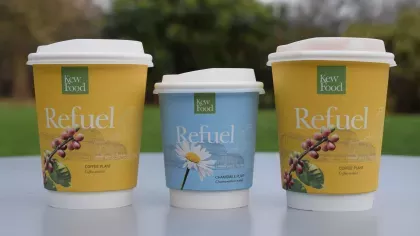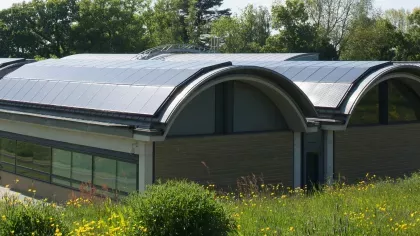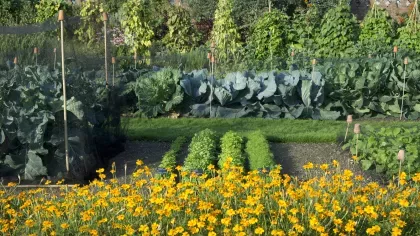22 October 2020
How we are reducing Kew’s environmental footprint
We are on a journey towards true sustainability in our gardens at Kew and Wakehurst.

Nature needs our help.
In the face of devastating threats, such as climate change and population growth, we need urgent action to protect the world’s biodiversity.
Failure to do so is costing humanity and our planet.
That’s why here at Royal Botanic Gardens, Kew, we are on a journey towards true sustainability.
Here are some of the current ways we are helping the environment in our gardens at Kew and Wakehurst.
Eliminating single-use plastic
We have removed almost all single-use plastic from our cafés and restaurants.
Instead, we are using compostable alternatives and eco-friendly packaging, including polylactic acid (PLA), which is biodegradable, recyclable and made from renewable material.
All our food packaging, takeaway cups, plates and cutlery are completely commercially compostable or recyclable.
At Kew, we have swapped plastic bottles of water with recyclable aluminium cans of water, CanO Water.
In our shops at both Kew and Wakehurst, we have removed all virgin plastic carrier bags and only use recycled paper bags. This is apart from plant bags, made from 100% recycled and recyclable plastic, which need to be waterproof and sealable for biosecurity.
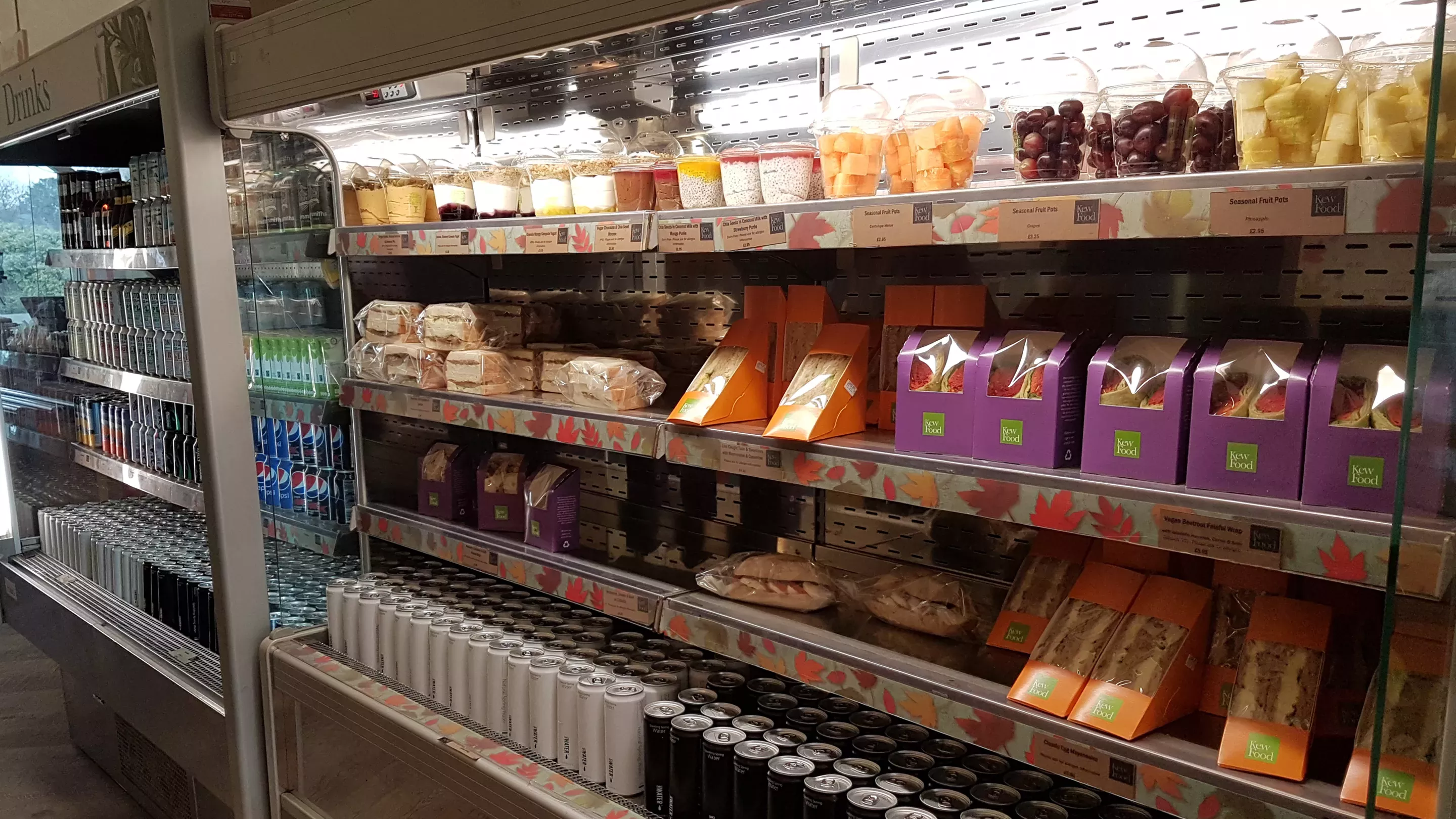
Guzzling garbage
At Kew, we have a special eco-friendly tool called the Garbage Guzzler.
It’s an aerobic waste digester and transforms all our compostable waste into soil improver, using heat and bacteria.
Sustainable eating
Eating less meat is one of the key ways to help the planet.
That’s why we offer tasty vegan options at all our cafés and restaurants.
We are also committed to using local and seasonal produce for our restaurant dishes, using the best of British produce.
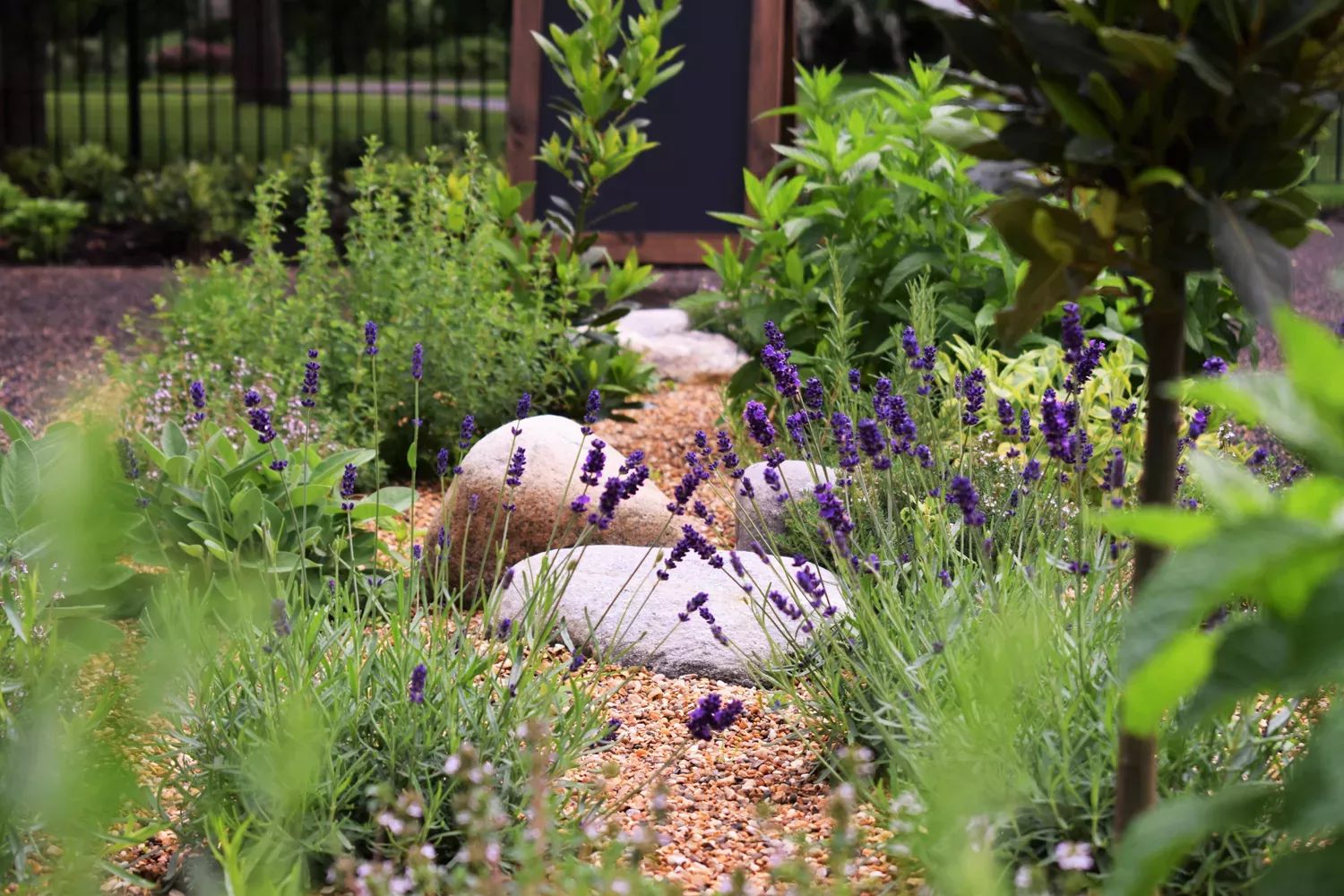
Growing our own food
We grow our own food on-site at Kew, some of which is used in our restaurants and cafés.
Our Kitchen Garden is used seasonally as a source for vegetables, fruit and herbs.
We also have a herb garden next to the Pavilion Bar and Grill, where we pick delicious herbs to flavour our dishes, from fresh mint to zesty lemon balm.
Wild herbs and plants are also foraged from across the Gardens to use in our eateries, such as nettles and wild garlic.
Learn more about how Kew’s restaurants are feeding us sustainably
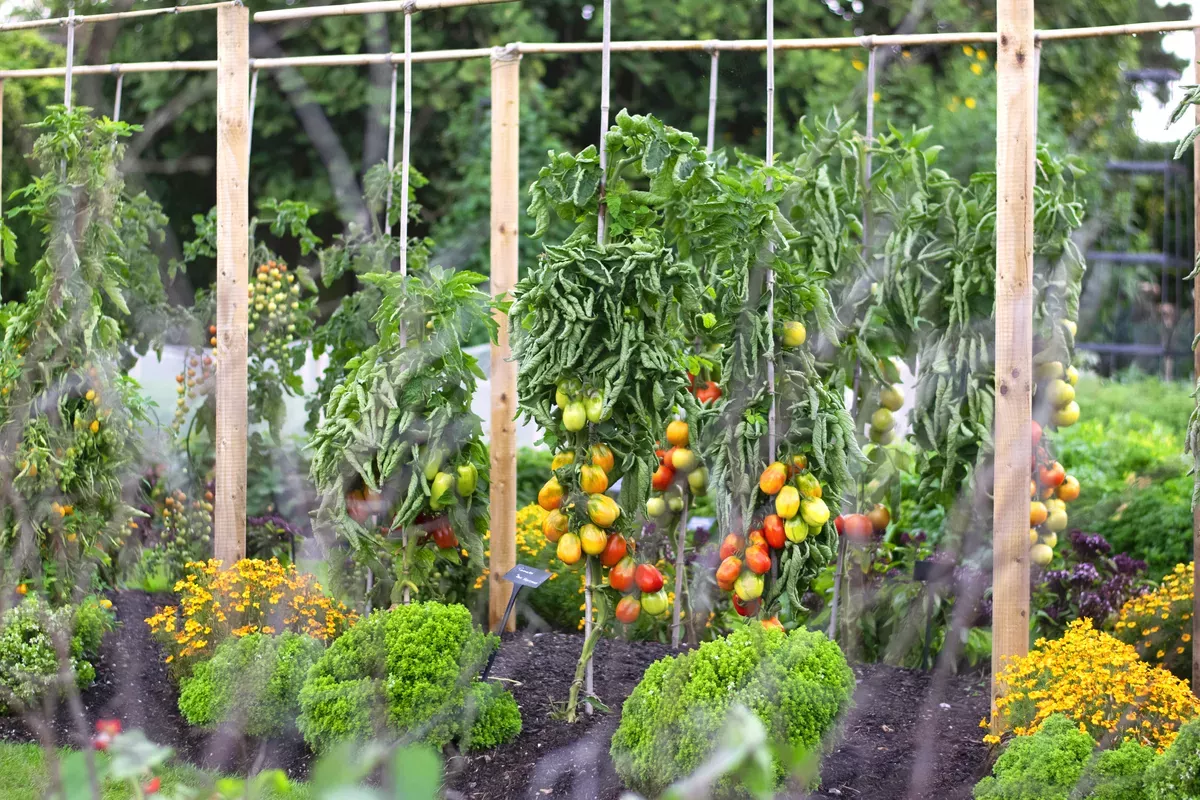
Selling eco-friendly products
We sell many environmentally friendly products in our shops.
Take your pick from sustainable skincare, homeware, our Recycled Reusable Coffee Cup, and much more.

Recycling our waste
We are on track to achieving zero waste to landfill at both our gardens, whether it comes from visitors or staff.
It is either sorted for recycling or incinerated for energy recovery and biofuel.
We also compost our plant waste and reuse it across the gardens.
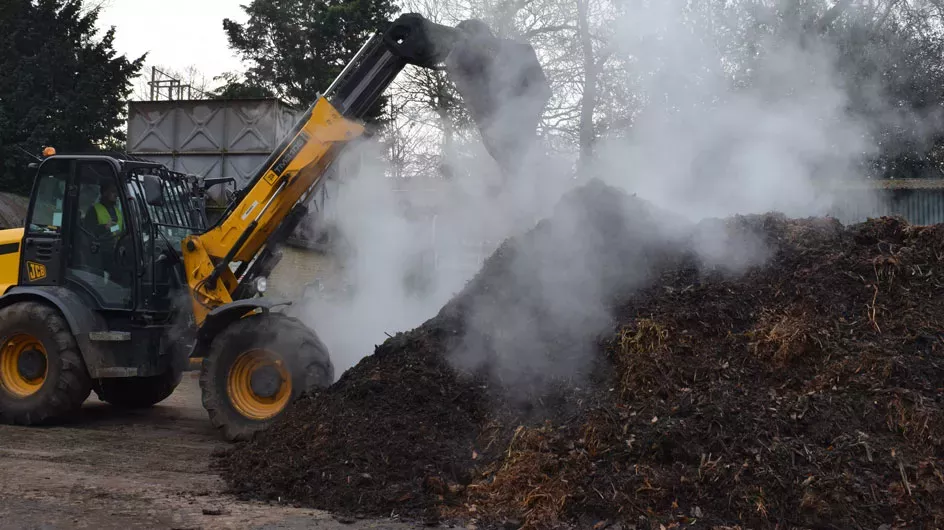
Using renewable energy
Since 2012, the sustainable Millennium Seed Bank at Wakehurst has had 50kW solar photovoltaic (PV) panels on the roof.
These solar panels have produced more than 400MWh of electricity and saved around 200 tonnes of carbon emissions.

Join us to protect plants and fungi
We invite you to join us on our journey towards sustainability to help protect our natural world.
Little changes can make a big difference so let’s take action now.
Find out what you can do to help, from growing your own veg to building a bug hotel.
There is still more of the road ahead but we will continuously strive to improve our eco-credentials until we are truly sustainable.

